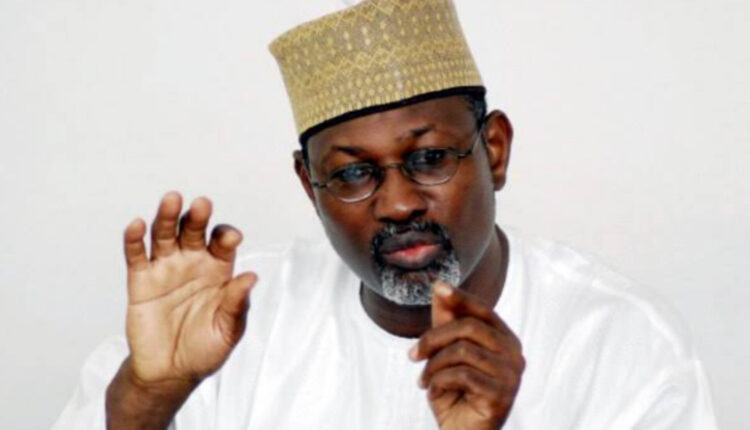Democracy Has Left the People Behind”: Jega’s Powerful Wake-Up Call to a Wounded Nation
In a nation where democracy is increasingly seen as a performance rather than a promise, former INEC Chairman and respected political thinker, Professor Attahiru Jega, delivered a piercing message: Nigerians are living under the shadow of democracy, not its substance.
Speaking at The Platform Nigeria: June 12 Edition, hosted by The Covenant Nation Global in Lagos, Jega did more than critique government failures—he offered a mirror to the people. What stared back was a distorted image of a republic where elections happen, but the people no longer hope.
“We’ve reduced democracy to a series of ceremonies—elections, inaugurations, speeches—while hollowing out its soul,” Jega said. “The people are not being served. They are being managed.”

From market women priced out of basic goods to graduates stuck in endless job hunts, to civil servants unpaid for months, the disconnect between governance and the governed has become a daily struggle.
In Jega’s eyes, the root cause is clear: a democracy hijacked by self-serving elites, wrapped in constitutional protections that shield them from scrutiny.
“The immunity clause was meant to protect leaders from distractions—not insulate them from consequences. Today, it’s a fortress for corruption,” he stated. “You can’t have accountability when those in power are untouchable for eight years.”
Jega argued for a total repeal of constitutional immunity, calling it incompatible with the democratic principle of equality before the law.
But democracy’s rot, he warned, runs deeper.
The Judiciary, once the last refuge of justice, is now a broken promise. “A judiciary vulnerable to political pressure is a democracy in peril,” Jega declared.
He painted a grim picture of delayed justice, inconsistent rulings, and judges more loyal to patrons than to the Constitution.
Election disputes, he said, must be resolved before leaders take office—not as a postscript to contested mandates. The current system, he argued, legitimizes fraud by rewarding speed over scrutiny.
The media, once a proud defender of democracy, also came under fire.
“When journalists are jailed, bought off, or intimidated, the truth becomes a casualty,” Jega said. “Without press freedom, the people remain blind while the powerful operate in darkness.”
He urged urgent enforcement of the Freedom of Information Act, and demanded that both government and media actors recommit to transparency and ethical journalism.
As former head of INEC, Jega had unique insight into electoral dysfunction. His diagnosis: INEC is overwhelmed and under-trusted.
He called for the electoral commission to be “unbundled”—with separate bodies prosecuting electoral crimes and regulating political parties—so that INEC can focus on credible elections.
“Even the best technology cannot save a system rigged from within. Trust must be earned, not assumed.”
When discussing the executive, Jega held nothing back.
“Our leaders live in excess while the people live in deficit—of power, of water, of dignity,” he said. “Security votes vanish without trace. Aides are appointed by the hundreds. Yet, no one can explain where the money goes.”
He demanded drastic cuts to political appointments and full transparency on security spending, calling the current culture **”entitlement without service.”
Still, Jega saved his most urgent appeal for citizens themselves.
“Democracy isn’t about casting a ballot once every four years. It’s about demanding better, every single day. It’s about saying no—to vote-buying, to ethnic politics, to stolen futures.”
He called for inclusive reforms: voting rights for the diaspora, early voting for essential workers, and legally mandated representation for women, youth, and people with disabilities.
“When millions are shut out, democracy becomes a lie told with ballots,” he said. “It must become real—or it will collapse under its own hypocrisy.”
As he ended, the former INEC chair’s voice trembled—not with fear, but with fierce conviction:
“We must stop mistaking civilian rule for democracy. That illusion is costing us everything. But it is not too late. If citizens rise, if leaders reform, if institutions are restored—Nigeria can still reclaim its soul.”
“Let the people rise. Let the reforms begin. Let democracy live—not in name, but in truth.”

